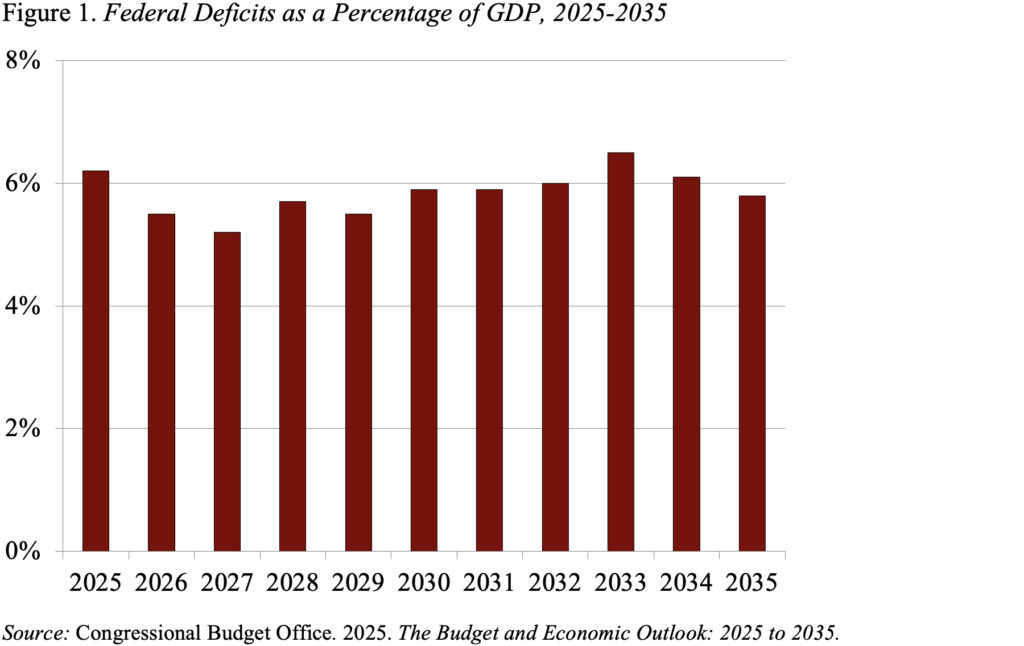The Biggest Beneficiaries Of The $500 Billion Stargate Project Might Not Even Be Ai Companies. Here Are 2 Other Stocks I'm Keeping A Close Eye On.

Shortly after taking office, President Donald Trump held a summit at the White House declaring that the technology world's biggest and most influential companies, Oracle, SoftBank, and OpenAI, would be investing $500 billion into AI infrastructure projects in the U.S. over a period of four years.
In hindsight, this announcement shouldn't come as a surprise to investors, thanks to massive strides made in artificial intelligence (AI) technology that led to its widespread adoption. Over the last few years, even before this latest announcement, companies have been spending billions building new data centers equipped with high-performance networking equipment, server racks, and of course, clusters of graphics processing units (GPUs).
Start Your Mornings Smarter! Wake up with Breakfast news in your inbox every market day. Sign Up For Free »
On the surface, it's easy to assume that hyperscalers such as Oracle, Amazon, Alphabet, and Microsoft would be the biggest beneficiaries from Stargate. Or what about chip stocks like Nvidia and Advanced Micro Devices?
While there's no doubt each of these companies has enormous potential under Stargate, I don't think traditional AI stocks will be the biggest beneficiaries from this massive infrastructure investment. Below, I'll outline why I have my eye on nuclear energy stocks, and detail two companies I think could be major winners over the next four years.
Why is nuclear energy important for AI?
It's obvious that cloud computing and chip stocks have been major winners during the AI revolution. But in the background, a number of nuclear energy companies have quietly performed at a high level as well. In fact, a nuclear power stock called Vistra was the second-highest performer in the S&P 500 last year -- trailing only Palantir Technologies.
As I alluded to above, data centers house a number of AI hardware products that are running complex algorithms around the clock. While high-performance compute is a necessity for training and inferencing AI models, it comes at a cost -- namely, in the form of power consumption.
Nuclear energy is considered to be a lower-cost and more efficient source of power compared to traditional sources keeping data centers up and running. For this reason, many tech giants, including Microsoft, Amazon, and Alphabet, have actively pursued nuclear energy over the last year.
Image source: Getty Images.
1. Constellation Energy
The first nuclear power stock I'll be exploring is Constellation Energy (NASDAQ: CEG). Constellation burst onto the scene late last year after the company announced a major partnership with Microsoft. Specifically, Constellation will be helping Microsoft build nuclear power plants on Three Mile Island.
Furthermore, in early January, Constellation was awarded over $1 billion in contracts from the U.S. General Services Administration (GSA). Per the terms of these deals, Constellation will supply the GSA with electricity from nuclear power as well as other green, efficient sources.

CEG PE Ratio (Forward) data by YCharts.
While Constellation appears to be firing on all cylinders, I do think the stock has gotten a tad pricey. The chart above illustrates the company's forward price-to-earnings (P/E) ratio over the last year. Notice the spikes around the September and January time frames. Both of these movements correlate closely with the Microsoft and GSA deals I referenced above.
To me, some of the potential of Constellation's new deals has become priced into the stock. With that said, I also think these partnerships serve as proxies for what investors could expect over the next several years, and investment in AI infrastructure continues to rise. For these reasons, I still see Constellation as a great opportunity tangential to the AI landscape and think the company is well on its way to become a leader in nuclear power.
2. Oklo
The next company on my list is Oklo (NYSE: OKLO). Oklo is developing fission powerhouses that convert or recycle nuclear power sources. According to the company's website, Oklo has a partnership with Equinix worth $25 million and has won more than $15 million in awards from the Department of Energy (DOE).
While this is all interesting to read, there are some important details investors need to be aware of when it comes to an investment in Oklo. Over the last 12 months, shares of this nuclear darling surged by 194%. As of this writing, Oklo's market capitalization is about $4.4 billion. That's pretty rich for a company that hasn't started generating revenue yet.
For now, Oklo remains a cash-burning operation that is still years away from making any inroads in its field of recycling nuclear power. Given the high degree of speculation, why do I think Oklo could emerge as a winner from the Stargate project?
Well, it all comes down to OpenAI CEO, Sam Altman. Oklo went public through a special purpose acquisition company (SPAC) operated by Altman. Moreover, the entrepreneur serves as chairman of Oklo's board of directors. Given Altman's involvement in Stargate, I would not be surprised to see Oklo emerge as a beneficiary down the road.
For now, Oklo is one to keep on your radar, but I wouldn't necessarily encourage investors to follow the momentum right now given how much shares have run up in a rather short time frame.
Don’t miss this second chance at a potentially lucrative opportunity
Ever feel like you missed the boat in buying the most successful stocks? Then you’ll want to hear this.
On rare occasions, our expert team of analysts issues a “Double Down” stock recommendation for companies that they think are about to pop. If you’re worried you’ve already missed your chance to invest, now is the best time to buy before it’s too late. And the numbers speak for themselves:
- Nvidia: if you invested $1,000 when we doubled down in 2009, you’d have $323,219!*
- Apple: if you invested $1,000 when we doubled down in 2008, you’d have $44,996!*
- Netflix: if you invested $1,000 when we doubled down in 2004, you’d have $524,860!*
Right now, we’re issuing “Double Down” alerts for three incredible companies, and there may not be another chance like this anytime soon.
*Stock Advisor returns as of January 27, 2025
Suzanne Frey, an executive at Alphabet, is a member of The Motley Fool's board of directors. John Mackey, former CEO of Whole Foods Market, an Amazon subsidiary, is a member of The Motley Fool's board of directors. Adam Spatacco has positions in Alphabet, Amazon, Microsoft, Nvidia, and Palantir Technologies. The Motley Fool has positions in and recommends Advanced Micro Devices, Alphabet, Amazon, Equinix, Microsoft, Nvidia, Oracle, and Palantir Technologies. The Motley Fool recommends Constellation Energy and recommends the following options: long January 2026 $395 calls on Microsoft and short January 2026 $405 calls on Microsoft. The Motley Fool has a disclosure policy.

